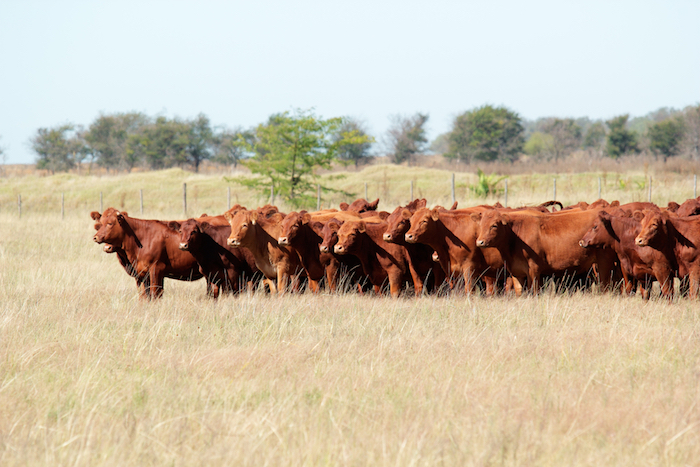Should Canadians be concerned about antibiotics in food animals?
Last week in part one of this three-part series, we explained why and how antimicrobials (of which antibiotics are one type) are used in beef cattle. This week we’re exploring the causes for concern over that use.
We continue our conversation with Dr. Sherry Hannon, research team lead and veterinary epidemiologist at Feedlot Health Management Services Ltd.
How long do antimicrobials stay in an animal’s system?
There are many different antimicrobials labelled for veterinary use in cattle in Canada. Each is classified according to its uses, its effect on bacteria and the way it works.
“As part of the label, a ‘withdrawal period’ – a period of time before which the animals are not allowed to enter the food chain – is specified. Some antimicrobials have a zero day withdrawal period (they are eliminated from the body within a very short period of time), while others are known to stay in the body for much longer periods,” Sherry explained.
Causes for concern in the use of antimicrobials
Sherry explained that there are two main concerns related to the use of antimicrobials:
1. Antimicrobial residues
A residue is a remnant of the antimicrobial molecule itself or a degradation product of that molecule, left in the animal after harvest.
“For each antimicrobial, a level of residues (usually extremely low) has been deemed to be acceptable for human health through rigorous safety trials,” said Sherry.
“Therefore, meat that goes for sale to people must be at or below that level. The withdrawal period for each antimicrobial defines the amount of time that must have elapsed from the last dose before an animal can be harvested for meat, thus ensuring any possible residues are below the acceptable level and safe for human consumption.
As an added step of food safety oversight, meat at processing plants is regularly tested for residues on an ongoing basis as part of quality assurance and compliance monitoring.”
2. Antimicrobial resistance
According to Sherry, of greater concern than residues is the issue of antimicrobial resistance, which for many reasons, has become a global health issue. As the use of antimicrobials continues, for people and animals, there is increasing development of bacteria that are resistant to them.
“There is a potential for the presence of bacteria on meat or in the environment which carry resistance genes for particular antimicrobials, and this relates to the possibility that these bacteria could multiply or infect people,” she said.
The role of continued research and monitoring
“The above concerns are actively addressed through continued research, regulatory requirements, veterinary oversight, antimicrobial stewardship practices, and producers’ commitment to provide safe and nutritious beef,” noted Sherry. “In addition, appropriate cooking of beef further protects against these concerns by inactivating any residues present, or by killing any viable microorganisms,” she stressed.
The Canadian Integrated Program for Antimicrobial Resistance Surveillance (CIPARS) monitors and describes antimicrobial resistance (and some use) in retail meat, on farm and in animal and human populations.
Stay tuned for part three of this series, in which we’ll discuss how food safety is ensured when antibiotics are used in cattle – and ongoing changes to regulation.
In the meantime, check out part one, ‘Antimicrobials and food production: 4 reasons antibiotics are given to beef cattle’.









Trackbacks & Pingbacks
… [Trackback]
[…] Find More on that Topic: cattlefeeders.ca/should-canadians-be-concerned-about-antibiotics-in-food-animals/ […]
… [Trackback]
[…] Find More on that Topic: cattlefeeders.ca/should-canadians-be-concerned-about-antibiotics-in-food-animals/ […]
… [Trackback]
[…] Find More Information here to that Topic: cattlefeeders.ca/should-canadians-be-concerned-about-antibiotics-in-food-animals/ […]
… [Trackback]
[…] Find More to that Topic: cattlefeeders.ca/should-canadians-be-concerned-about-antibiotics-in-food-animals/ […]
… [Trackback]
[…] There you will find 52317 additional Information to that Topic: cattlefeeders.ca/should-canadians-be-concerned-about-antibiotics-in-food-animals/ […]
… [Trackback]
[…] Information on that Topic: cattlefeeders.ca/should-canadians-be-concerned-about-antibiotics-in-food-animals/ […]
… [Trackback]
[…] Read More to that Topic: cattlefeeders.ca/should-canadians-be-concerned-about-antibiotics-in-food-animals/ […]
… [Trackback]
[…] Find More on on that Topic: cattlefeeders.ca/should-canadians-be-concerned-about-antibiotics-in-food-animals/ […]
… [Trackback]
[…] Find More on that Topic: cattlefeeders.ca/should-canadians-be-concerned-about-antibiotics-in-food-animals/ […]
… [Trackback]
[…] Find More on that Topic: cattlefeeders.ca/should-canadians-be-concerned-about-antibiotics-in-food-animals/ […]
Comments are closed.